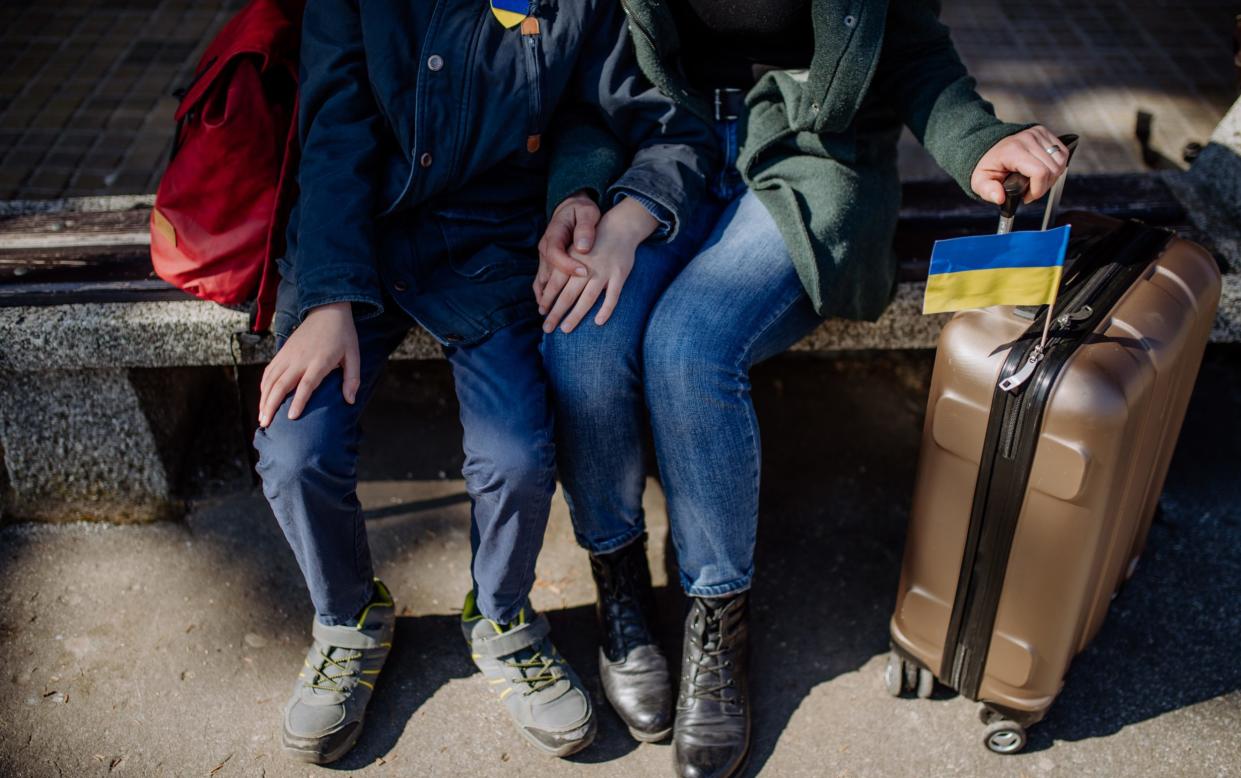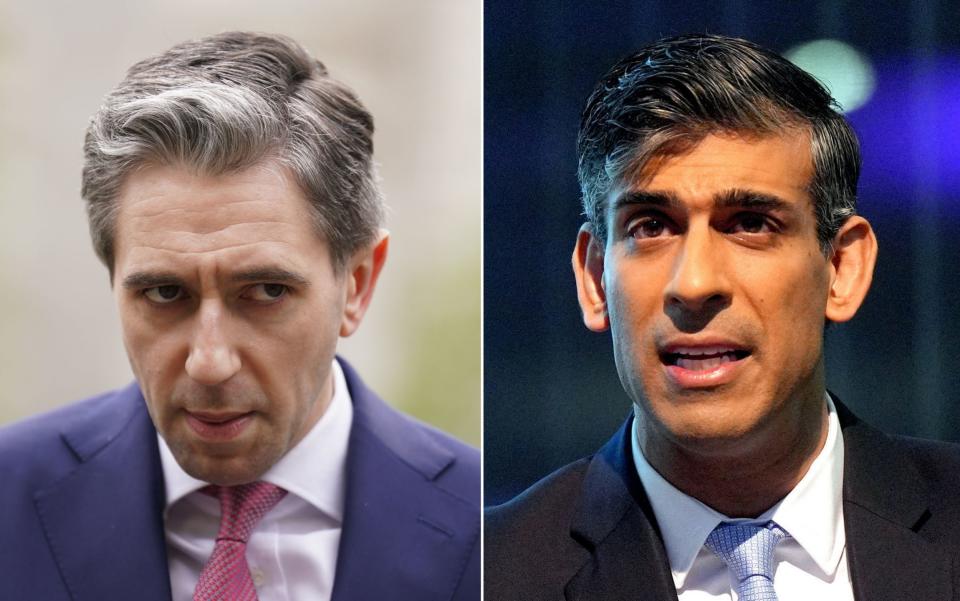Ireland considering making further benefit cuts to Ukrainian refugees

- Oops!Something went wrong.Please try again later.
Ireland is considering making further cuts to support and benefits for Ukrainian refugees, as it struggles to house rising numbers of migrants arriving in the country.
Ministers will discuss immigration in Dublin on Thursday afternoon, a day after Rishi Sunak and Simon Harris, the Irish Prime Minister, clashed over claims that asylum seekers were crossing the border from Northern Ireland to escape the Rwanda plan.
Tensions over immigration are high in Ireland, a country of about 5.1 million people, which is struggling with a housing crisis and has welcomed more than 104,000 Ukrainian refugees since Putin’s illegal invasion.
More than 6,000 people applied for asylum in Ireland by April 12 this year alone. If that rate continues, Ireland would have a record number of more than 20,000 asylum claims by the end of 2024. The previous record was 13,000 in 2004.
Ireland at limit of support
Dublin has claimed that up to 90 per cent of the asylum seekers have crossed the border with the UK, but that has been disputed.
Last year, Ireland slashed its allowance for newly arrived Ukrainian refugees, said it was at the limit of the support it could offer migrants and began using tented accommodation to house asylum seekers.
It cut payments for newly arrived Ukrainians in state accommodation to £33.19 a week from £188.19 and put a 90-day limit on the time they can have government housing.
It also tightened support for migrants to make it more similar to the UK and other Western European countries, amid fears the more generous offer was acting as a pull factor.
‘Shanty town’ dismantled
The Irish Times reported that further cuts in support for Ukrainians would be among the issues discussed at the meeting on migration, after police dismantled a “shanty town” of tents housing migrants that had sprung up around the asylum claims office in Dublin city centre on Wednesday.
The plan to reduce support further could cause tensions between Ireland’s three-party coalition government of the centre-Right parties Fine Gael and Fianna Fáil and the Green Party. The Greens have reservations about the need for further cuts as increasing numbers of Ukrainians are returning home from Ireland.
Mr Harris has announced plans to send 100 extra police to border areas and called on Mr Sunak to uphold a UK-Ireland migrant returns agreement signed in 2020.

Irish sources said a single person had been returned to the UK since the post-Brexit return agreement, made as part of the arrangement over the Common Travel Area, was made four years ago.
Mr Sunak claims that the deal is not legally binding and wants Ireland to lobby Brussels for a UK-EU returns deal that will allow Channel migrants to be sent back to France.
On Wednesday, he accused Dublin of “cherry-picking” international agreements by sending the officers near the open border.
He said the UK had made commitments to avoid a hard border as part of the Good Friday Agreement, the Common Travel Area and the Brexit Withdrawal Agreement, and that the Irish Government “must uphold its promises”.
No checkpoints on open border
Mr Harris has stressed there will not be checkpoints on the border and that the 300-mile frontier itself will not be physically policed.
Border infrastructure has been gradually removed from the Irish land border in the 26 years since the Good Friday Agreement was signed.
Dublin insisted the border had to remain open after Brexit created a UK land border with the EU for the first time to protect the peace process, which led to the creation of the Irish Sea border between Britain and Northern Ireland.
The only police unit dedicated to combating illegal immigration across the border has been all but disbanded in recent years, it was reported.
It also came to light that it would take the 100 extra officers up to a year before they could all be redeployed from desk duties to prevention and deportation.
Just two border control officers left
The Dundalk-based Immigration Border Control Unit was set up in 2004. The Irish Times reported it had 12 officers at its height but that that had now dwindled to just two, who were mostly desk-bound and didn’t conduct checks.
Instead, other officers travel from Dublin to carry out intelligence-led routine checks on buses and trains. The police said this could be up to 300 checks a month “depending on circumstances”.
Immigration looks certain to dominate European Parliament elections in June in a country which must hold its next general election by March.
Mr Harris took over as Prime Minister from Leo Varadkar in April in a bid to avoid almost certain defeat by the poll-leading Sinn Féin.

